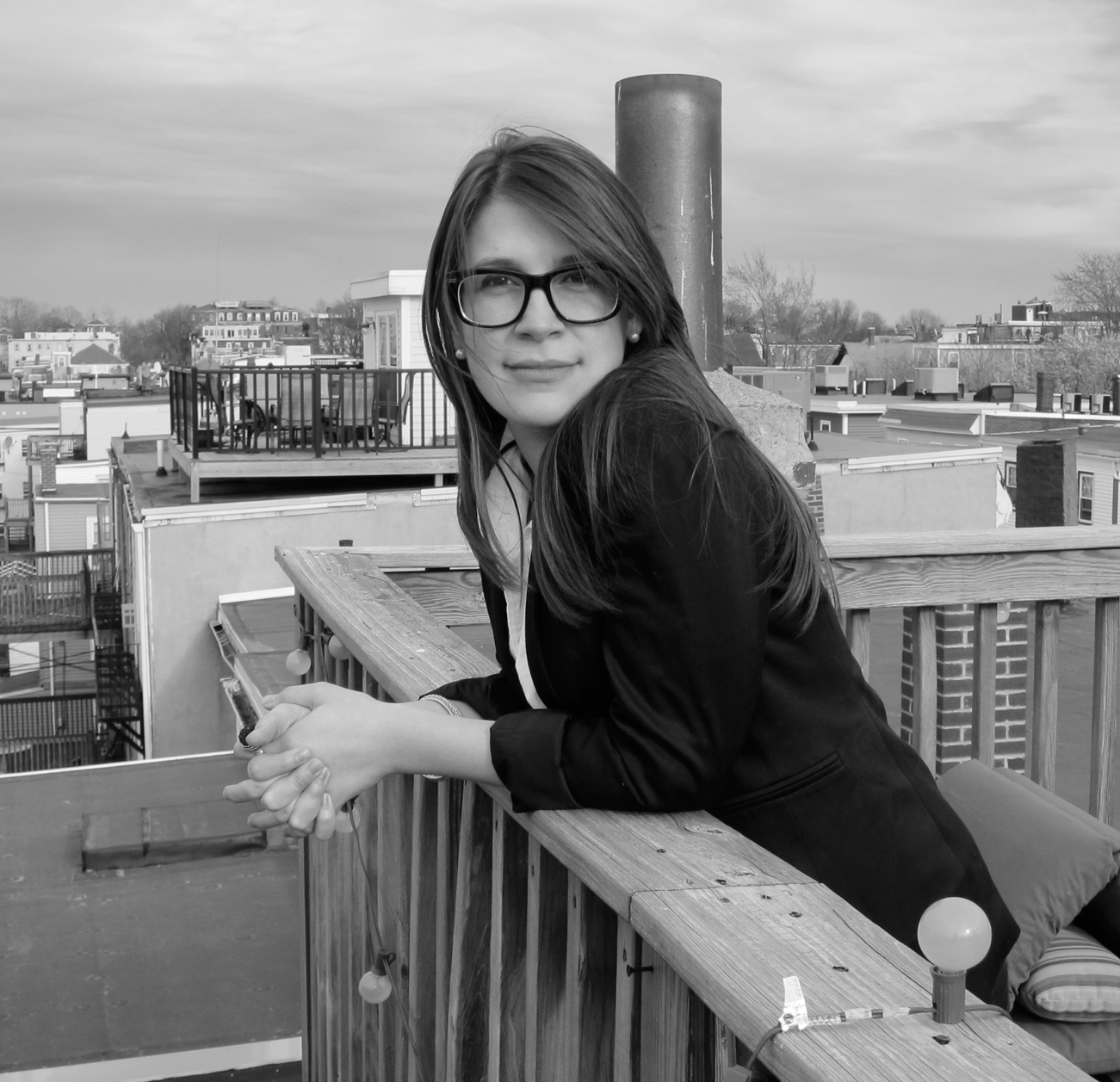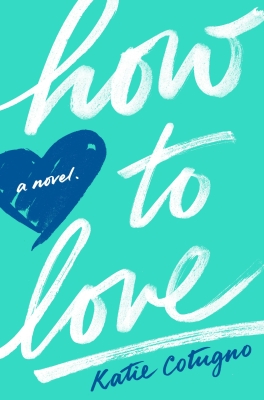Katie Cotugno’s debut How to Love (Balzer+Bray) is unlike any Young Adult novel I’ve read, or maybe it’s that the genre has changed a lot over the years. At 400 pages, the novel is an epic two-love-stories-in-one: the Before section takes you through the first time Reena and Sawyer fall in love as teens and the After section catches up with the two characters learning to love each other again as adults. But the whole thing is complicated, of course. When Reena is pregs with Sawyer’s child, he leaves her behind without any warning. Three years and a mountain of emotions later, Sawyer casually pops back into town, not only in Reena’s life, but his new baby girl Hannah’s as well. Over a series of tweet exchanges and then e-mails, I asked Katie a few questions about How to Love. (And it was selected from a slush pile! — how’s that for inspiring?) Read on to find out more…
I’d love to hear your thoughts on the YA genre. Half the time your characters are older and going through very adult situations. Do you think YA is shifting, that stories are getting more mature?
I think you’re right that there’s definitely room for some crossover in the audience for How to Love—the After chapters in particular have some New Adult or Women’s Fiction elements to them for sure. One thing I love about the genre is how elastic it is—there’s room for all different kinds of stories, for all different kinds of readers. I’m in a group of debut YA authors called the Fourteenery, and the range of topics and themes in our books is staggering, and so cool to see.
You’re telling a dual love story, with the Before and After sections. How did you initially come up with this concept?
I’ve been carrying Sawyer and Reena around in my back pocket since high school, when I was listening to a lot of lady singer-songwriters and having a hard time finding the kind of realistic love stories I wanted to read. The first draft of the novel was my senior thesis at Emerson College, actually, and it’s had a few different incarnations since then—it’s definitely been a long haul.
Tell us a bit about how you landed a book deal, and how you also struck up a deal with Alloy Entertainment.
I signed with Alloy back in 2011, when they picked How to Love out of slush as the first title for The Collaborative. I worked super closely with Josh Bank, Sara Shandler, and Joelle Hobeika there on revisions—those guys are the absolute best at what they do—and we sold to Alessandra Balzer at Balzer+Bray in early 2012. Film or TV would be amazing, of course, but in the meantime I’m just excited to get to write more books. This whole ride has been a literal dream come true for me—I couldn’t ask for a better team.
Not to give too much away but the subplot with Reena’s best friend is absolutely devastating. Did you have qualms at all about interjecting such harsh reality into your book?
I think everyone kind of has that moment at some point when they’re growing up, when you realize bad things can happen to you and the people you know. It’s jarring for sure, both in fiction and in real life, but I really didn’t want to back off the tough stuff in How to Love—the tough stuff’s what makes the story. I mean, the tough stuff and the kissing.
Oh god, there are so many of these perfectly crafted moments of sweet nervousness, hesitation, awkward flirting, heartache, and disappointment in dealing with a first love. Are these experiences from your personal history?
First of all, thank you! You know, everything is so incredibly heightened and important when you’re Reena’s age, especially in the Before chapters—good stuff and bad stuff both, like you’re constantly swinging back and forth from one end of the spectrum to the other. It’s intense, and sometimes awesome, and hugely exhausting. My situation was very different from Reena’s, but I’m somebody who takes first loves really seriously—I met my fiance when I was sixteen—and I definitely remember what it was like. It was a lot of fun to be able to re-experience that feelings tsunami, and then take a break and make a sandwich and kind of relax back into my boring old-lady life.
What are your honest thoughts of Sawyer, in real life? I have to say, I couldn’t figure out my feelings for him more than half the time, like I kept switching back and forth between hating his guts and genuinely caring for him.
Oh, Sawyer. Light of my life, fire of my loins, etc. Guys that are the worst but also occasionally the best are my fictional Kryptonite, and Sawyer has a lot of that going on. What’s appealing in fiction is different than what’s appealing in real life, though, and especially in the Before sections, you’re right that he spends a good chunk of time behaving badly. Having said that, I do like to allow for the possibility of change in people, both real and imaginary, and hopefully he redeems himself a bit as the story goes on.
Do you write full-time? I love to hear what other writers do for additional work.
I work four days a week at a nonprofit right outside of Boston, answering phones and unjamming copy machines. I’ve been there since I graduated college, and I really love it—for me personally, it’s super important to have somewhere I’m required to show up week in and week out. I’m not the most structured person when it comes to when and how I write, but too much free time and I start to kind of chew my own arm off all rabid-like.
Let’s talk a bit about Emerson (our alma mater)! How do you think your education there changed your writing?
Gosh, I had so many great writing teachers at Emerson—Jessica Treadway and Mike Rosovsky in particular—and I learned so much about myself as a writer while I was there. I feel like it’s a real gift to be able to workshop your stuff from the time you’re a freshman—not only does it force you to produce, but it toughens you up in a way that was really useful to me as I started to try and publish.
And you still live in Boston! Do you think the city affects your work, if it does at all?
I love Boston, man. I’ve lived here for ten years and would live here ten more if I could see my family more often, but the plan is definitely to move home to New York sometime in the next few years. Boston is such a transient city, though—I feel like people tend to hang out here for a few years before heading off somewhere else—and there’s kind of a longing or wistfulness that comes from staying here that does definitely seep into my writing.
Any ideas for a Halloween costume?
It is like, my fondest wish to go as Baby Houseman [from Dirty Dancing] and get strangers on the street to do the lift with me. I can recite that whole movie by heart.![]()
katiecotugno.com
@katiecotugno

